An oratorio is a large musical composition for orchestra, choir, and soloists. Like most operas, an oratorio includes the use of a choir, soloists, an instrumental ensemble, various distinguishable characters, and arias. However, opera is musical theatre, while oratorio is strictly a concert piece – though oratorios are sometimes staged as operas, and operas are sometimes presented in concert form. In an oratorio, the choir often plays a central role, and there is generally little or no interaction between the characters, and no props or elaborate costumes. A particularly important difference is in the typical subject matter of the text. Opera tends to deal with history and mythology, including age-old devices of romance, deception, and murder, whereas the plot of an oratorio often deals with sacred topics, making it appropriate for performance in the church. Catholic composers looked to the lives of saints and histories from the Bible while Protestant composers only to Biblical topics. Oratorios became extremely popular in early 17th-century Italy partly because of the success of opera and the Catholic Church's prohibition of spectacles during Lent. Oratorios became the main choice of music during that period for opera audiences.

The Easter Oratorio, BWV 249, is an oratorio by Johann Sebastian Bach, beginning with Kommt, eilet und laufet. Bach composed it in Leipzig and first performed it on 1 April 1725.

St. Martin is the name of a Catholic parish and church in Idstein, Rheingau-Taunus-Kreis, Germany. The official name of the church is Katholische Pfarrkirche St. Martin. The name of the parish became St. Martin Idsteiner Land on 1 January 2017, when it was merged with five other parishes. The parish is part of the Diocese of Limburg.
Berthold Klemens Possemeyer is a German baritone in opera and concert, and a voice teacher at the University of Music and Performing Arts in Frankfurt am Main.

Thomas Gabriel is a German church musician, composer and arranger.
Rolf Schweizer was a German composer, choirmaster and church music director, who was based primarily at Pforzheim. Schweizer was part of the movement Neues Geistliches Lied, and his compositions, several of which appear in the Protestant hymnal Evangelisches Gesangbuch (EG), were heavily influenced by contemporary secular music, especially jazz.
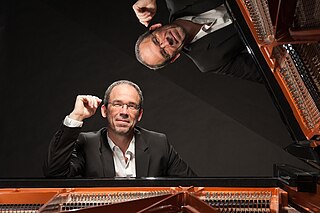
Michael Schütz is a German church musician, composer and university lecturer. He is especially dedicated to the connecting traditional musical styles with pop music styles, for songs of the genre Neues Geistliches Lied.
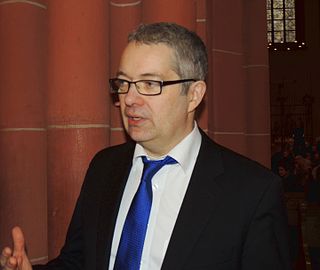
Peter Reulein is a German composer, organ improviser, academic teacher and church musician, from 2000 at the church Liebfrauen in Frankfurt am Main. In 2016 he composed for the Catholic Diocese of Limburg the Franciscan oratorio Laudato si'.

Eugen Eckert is a German social worker, minister, singer-songwriter and academic teacher. He is known for his lyrics for new spiritual songs, and his oratorios and musical plays.

Laudato si' is an oratorio composed in 2016 by Peter Reulein on a libretto by Helmut Schlegel. Subtitled Ein franziskanisches Magnificat, it includes the full Latin text of the Magnificat, expanded by writings of Clare of Assisi, Francis of Assisi and Pope Francis. The composer set it for five soloists, children's choir, Choralschola, mixed choir, symphony orchestra and organ. It was published in 2016 by the Dehm Verlag, and was premiered on 6 November 2016 at the Limburg Cathedral, conducted by the composer.
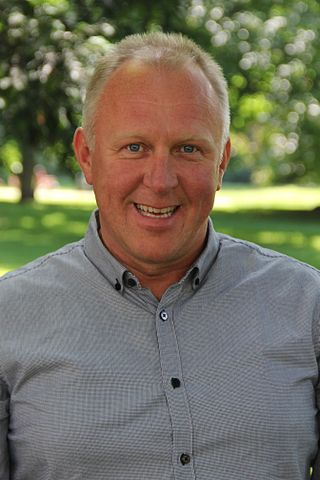
Patrick Dehm is a German Catholic theologian, supervisor and clinical Gestalt therapist. He and his brother founded the Eugen Dehm foundation, supporting a holistic health concept, in memory of their father.
Günter Neubert is a German composer and tonmeister.
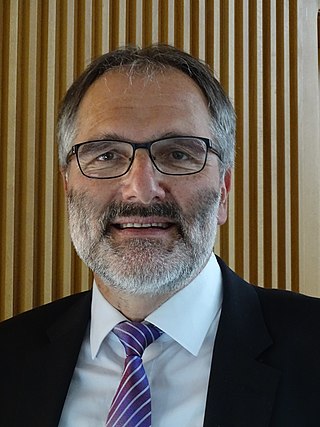
Matthias Hanke is a German organist and church musician. He is a regional head of church music of the Protestant church in Württemberg as Landeskirchenmusikdirektor of the Evangelische Landeskirche in Württemberg. Previously he was responsible for the church district of Böblingen and Kirchenmusikdirektor in Sindelfingen. His church choirs and orchestra have toured internationally, and made recordings.
Eins is an oratorio written on a commission from the Ökumenischer Kirchentag 2021 in Frankfurt, Hesse, Germany, the third ecumenical convention of lay Christians of different denominations in Germany. The text was written jointly by the Protestant pastor Eugen Eckert and the Catholic Franciscan Helmut Schlegel. The music of many genres was composed by Peter Reulein for the more traditional parts and by Bernhard Kießig for jazz and pop elements. The work is subtitled Ökumenisches Oratorium in vier Bildern für Solisten, Chor, Orchester und Band.
Bernhard Kießig is a German pianist, especially jazz pianist, composer and lecturer. He composed part of the oratorio Eins for Ökumenischer Kirchentag 2021.
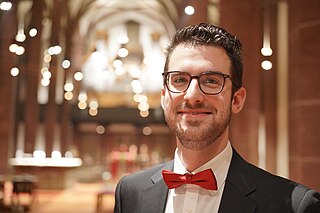
Johannes M. Schröder is a German organist, composer and Catholic church musician. After several years responsible for the church music at the Westerwälder Dom, he moved to St. Bonifatius, Wiesbaden. He is also a lecturer and a music editor.

"Gott hat mir längst einen Engel gesandt" is a 1996 Christian song with text by Eugen Eckert, set for a four-part choir by Thomas Gabriel as part of the rock oratorio Daniel. It became a hymn of the genre Neues Geistliches Lied, which is contained in several hymnals and songbooks.
"Auf dem Weg durch diese Nacht" is a Christian hymn created in 2005 by lyricist Eugen Eckert and composer Horst Christill. The song of the genre Neues Geistliches Lied (NGL), was first published and recorded in 2006, and has appeared in German hymnals and songbooks. Auf dem Weg durch diese Nacht became the title of a 2021 choral collection of new compositions for Abendlob.
Die Weihnachtsgeschichte, Op. 10, is an oratorio by Hugo Distler, composed in 1933. He set Biblical texts about the nativity of Jesus in German, interspersed with different settings of stanzas of the hymn "Es ist ein Ros entsprungen", for soloists and choir a cappella. A critical edition was published by Carus-Verlag in 2015.

"Fürwahr, er trug unsre Krankheit" is a Christian hymn of the genre Neues Geistliches Lied with text written by Eugen Eckert in 1987 to a melody from Chile. It is based on a passage from the Book of Isaiah. It is part of hymnals, including the German Catholic hymnal Gotteslob as GL 292, and songbooks.










